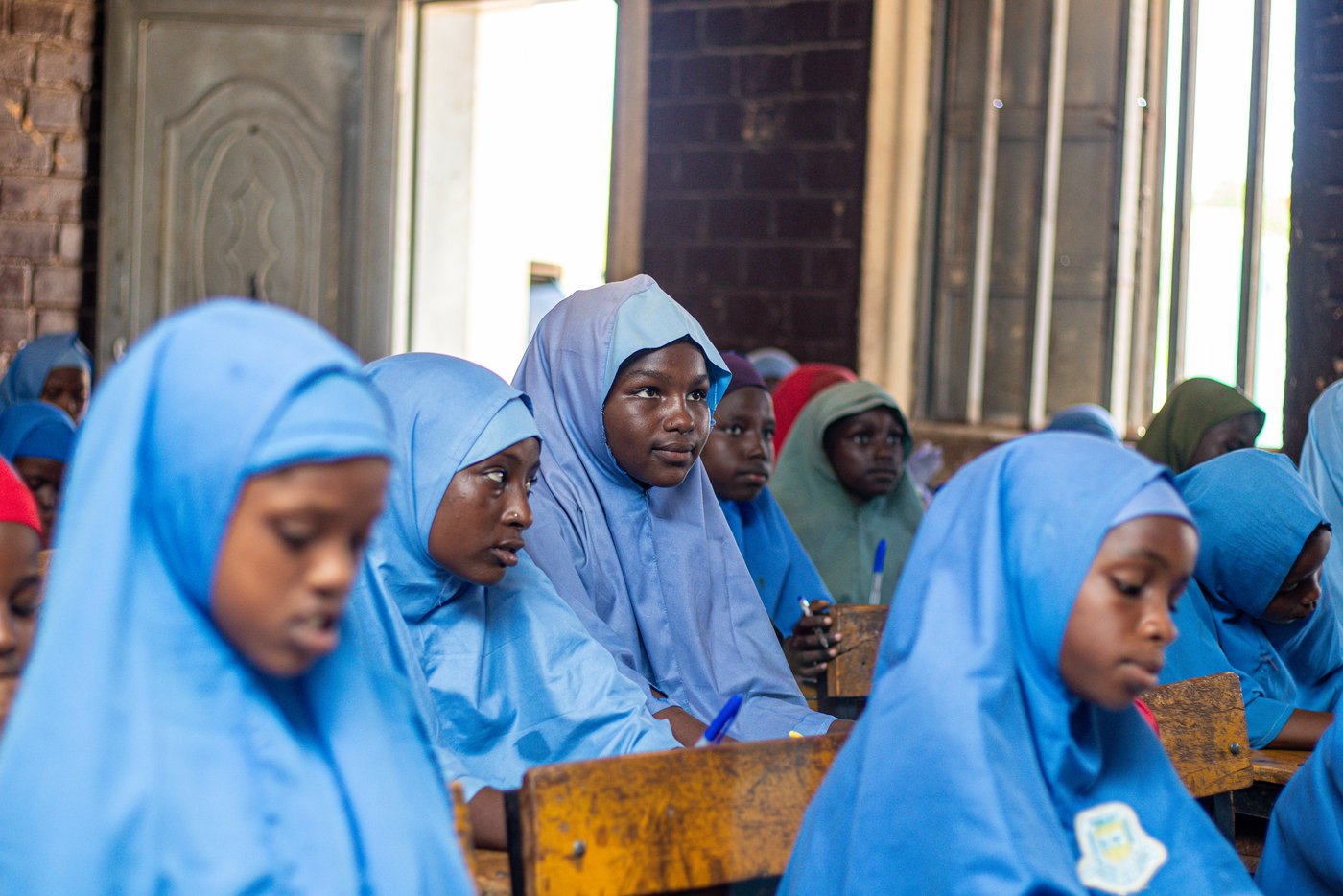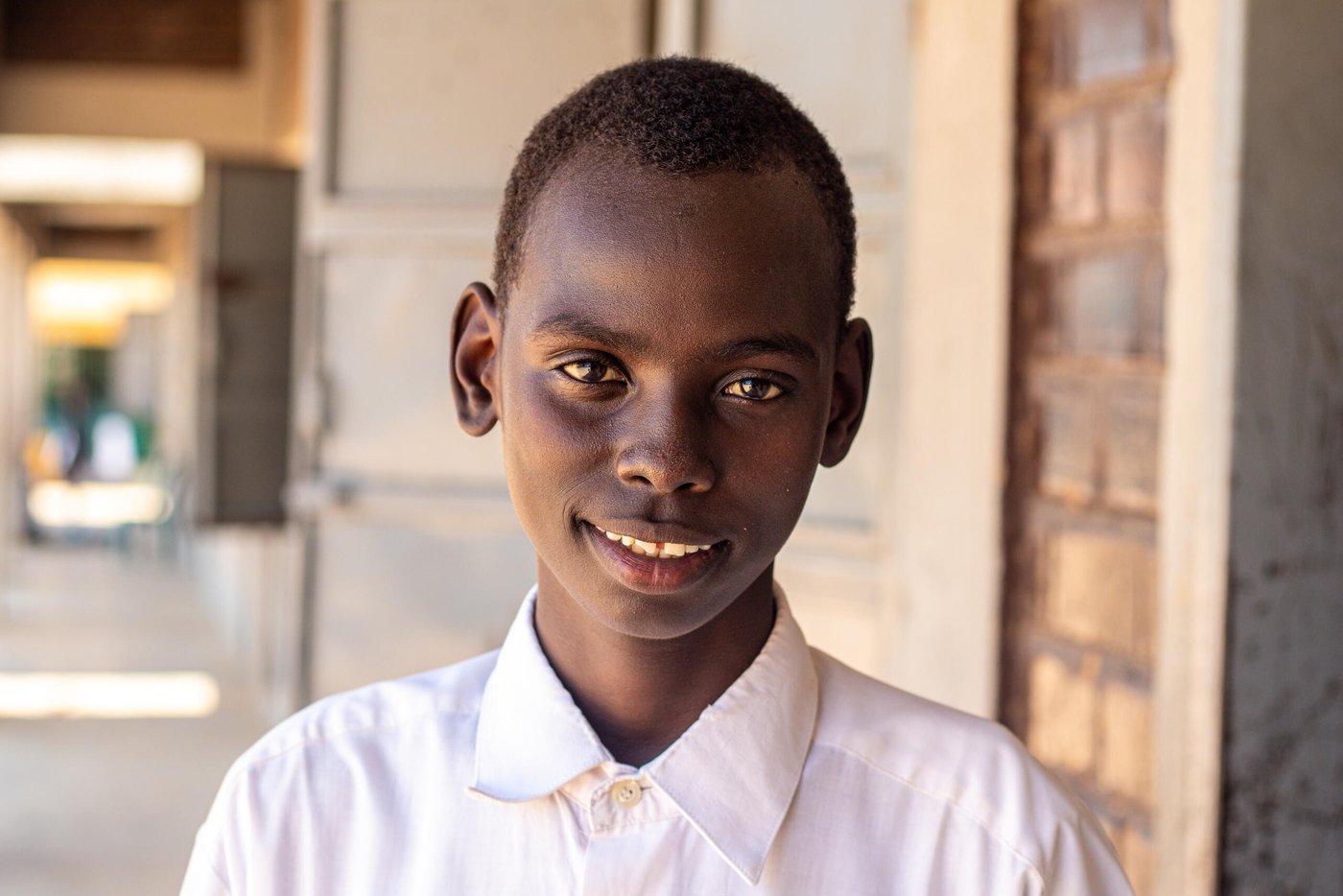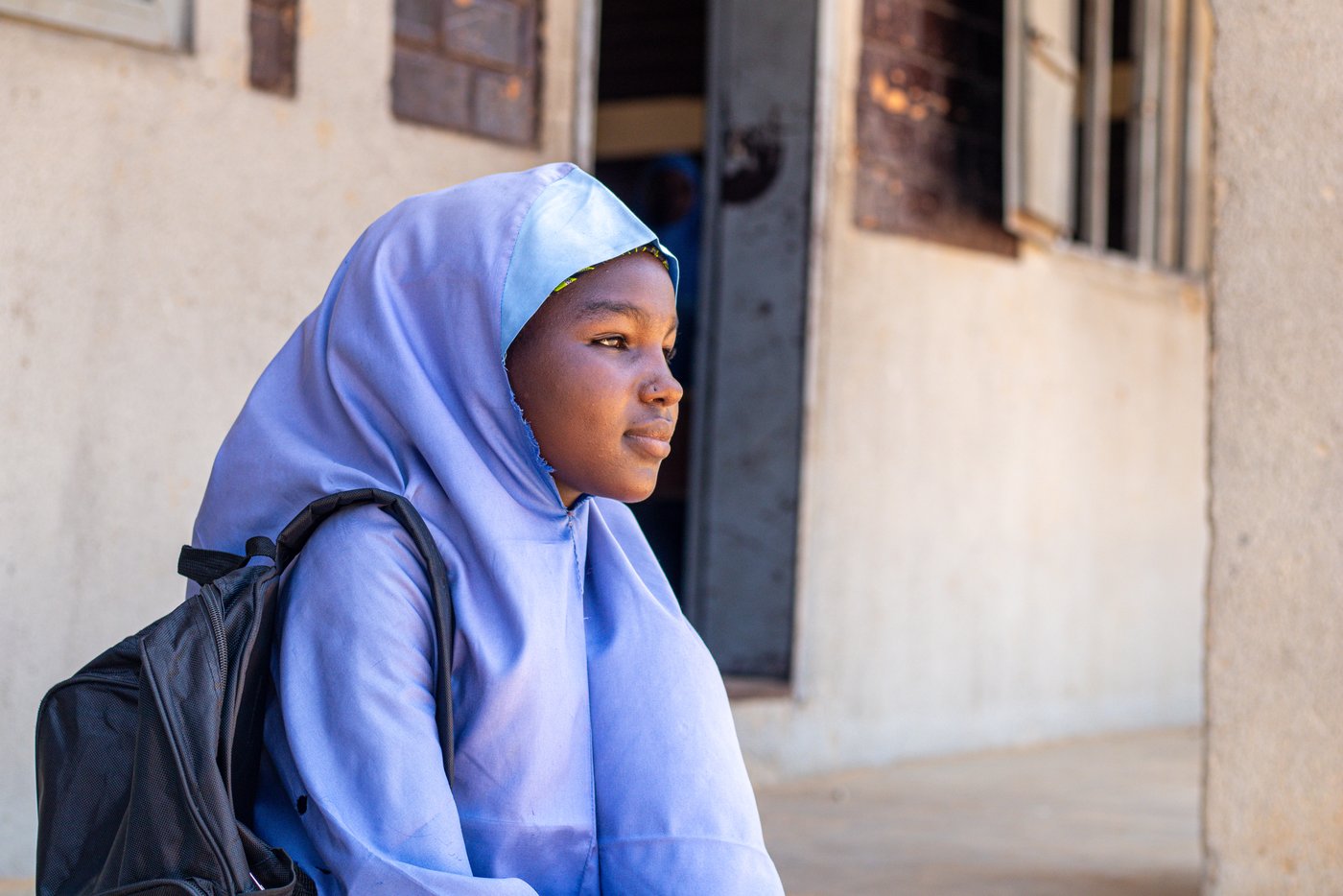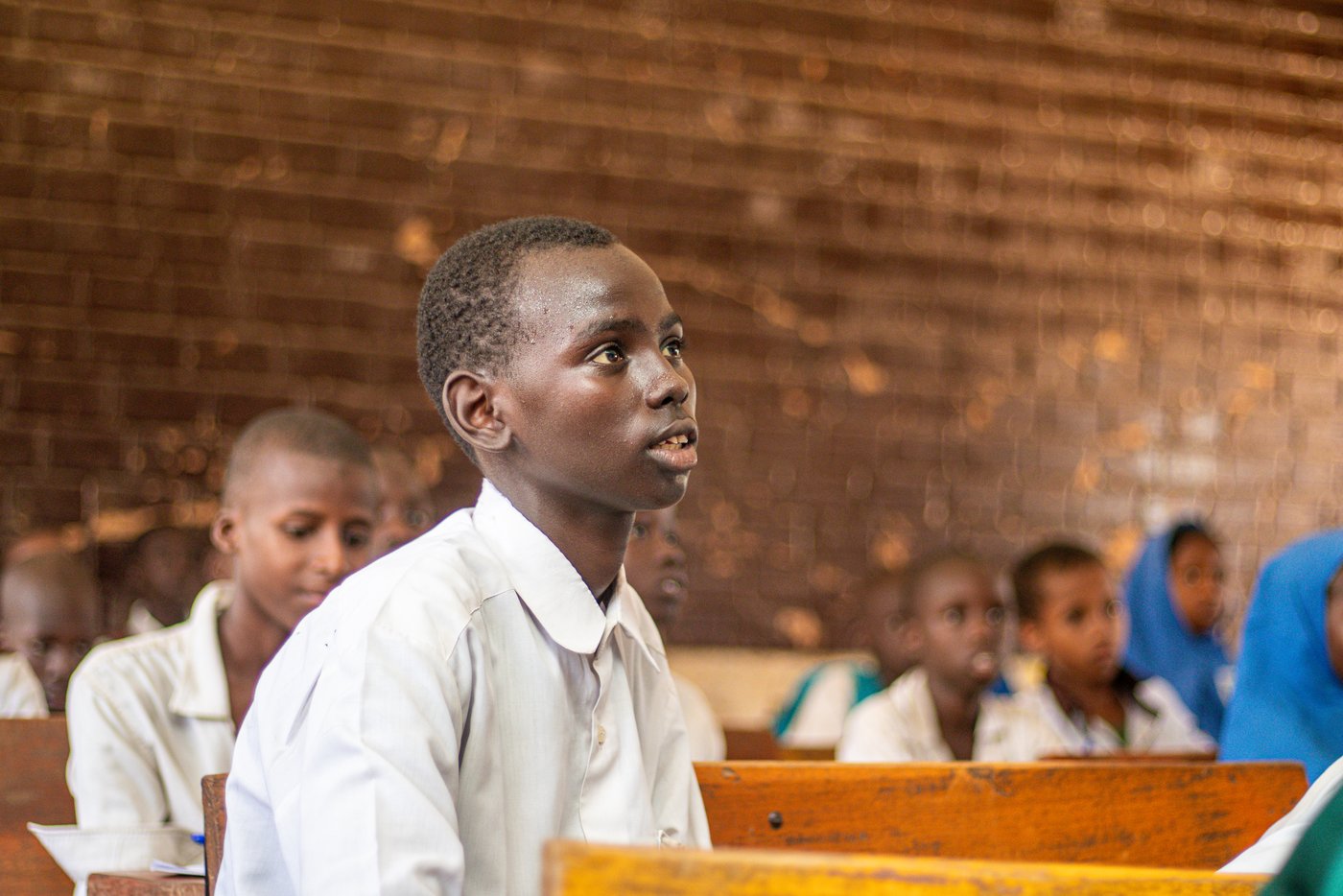In November 2024, UNICEF estimated that approximately 2 million children in Borno, Adamawa and Yobe states were out of school. More than half of the displaced children in these states had never set foot in a classroom. Those that do attend school face poor learning conditions. Only 29 per cent of schools have qualified teachers, and 72 per cent of pupils who complete primary school are unable to read simple text.
Against this backdrop, the Norwegian Refugee Council (NRC) set up a project, funded by EU Humanitarian Aid, to address some of the issues. Working with the state education agencies in Borno and Adamawa, NRC helped children who had missed years of schooling to enrol in nine-month catch-up classes across the duration of the project.
After building their literacy and numeracy foundations, these children took exams and were successfully mainstreamed into formal schools, giving them a second chance at education and a brighter future.

Opening the school gates for every child
In Borno and Adamawa States, NRC worked closely with the State Agency for Mass Education and State Universal Basic Education Board (SUBEB) to ensure that children who had fallen behind were not permanently excluded from the school system. For nine months, children attended catch-up classes where they focused on literacy, numeracy and life skills. At the end of this period, they sat for exams organised in collaboration with the state agencies. Through this process, about 5,048 learners have been officially mainstreamed into formal state schools.
For Adam Jidda, the catch-up classes changed his life.
“At first, my parents did not want me to attend school. But I joined the lessons when we saw other children coming back home and showing us what they had learnt. NRC put us through these lessons, and after the exams, we were enrolled in school. I am very happy about it,” he explains.
“The teachers showed us how to calculate, how to read, and even some important life skills. It has been nine months since I started going to school, and I have learnt a lot. Our teachers take good care of us, and I want to read so I can fulfil my goals in the future. I want to become an electrical engineer, Insha’Allah.”
Zainab Isa, a 13-year-old girl, remembers how it all began.
“I saw other children in my neighbourhood attending lessons, and one day my mother told me to follow them and write my name. That was how I started. At first, we went together every day, and I made friends quickly. It was not difficult. Now, I am enrolled in school, and I enjoy every subject. Any teacher who comes teaches us their own subject, and we write. I want to become a teacher when I grow up,” she says.
Their stories highlight the experiences of hundreds of children who can start dreaming again because they have been given a chance to learn.

Beyond education – a lifeline for families and communities
While education was at the heart of the intervention, the project recognised that children are unable to thrive in classrooms if their families are hungry, live in unsafe shelters, or go without basic services. The project thus extended its impact beyond schools and into the wider community.
Families were supported with livelihoods and food assistance through cash or food distributions. Farmers received tools and other items to improve their farming. These measures helped parents put food on the table and reduced the need for children to hawk or beg on the streets.
Access to clean water and sanitation was also improved. Schools and neighbourhoods benefited from solar-powered water points, as well as latrines and hygiene awareness campaigns, ensuring children could learn in healthier conditions. Families who had endured years in makeshift shelters were given semi-permanent homes and household kits, restoring safety and dignity to their lives.
The project also allowed for rapid response in the event of an emergency. In September 2024, when floods devastated Maiduguri, NRC provided shelter and relief items to displaced families with the support of EU Humanitarian Aid. A similar response was carried out in Yola in 2025, helping affected communities recover and rebuild.
A family with secure shelter, food on the table, and clean water creates a safer and more supportive environment for children to stay in school and succeed.

Building futures together
The strength of the project lay in its integrated approach: addressing education while also ensuring families’ broader needs were met. This holistic model prevented children from dropping out again and supported entire communities to recover with dignity.
NRC’s Education Specialist, Ronald Odero, reflects: “Every child we mainstreamed into school was a child we helped reclaim their future. But education did not stand alone. The livelihoods, shelter, food and WASH support were what kept families hopeful and together. They gave children the stability to stay in school.”
The project showed that when humanitarian assistance looks at the entire needs of people who have been affected by conflict, children like Adam and Zainab can smile with hope at the prospects of a brighter future, supported by stronger communities around them.
Sign up to our newsletter to read more stories from around the world.


